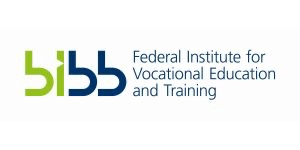Asia-Pacific governments and TVET institutions have taken positive action to align TVET training with current and future labour market skills needs
Most lead ministry staff participating in the 2015 Asia-Pacific TVET Progress Review survey said that their government has implemented measures to align TVET training with current and future skills needs by doing one or more of the following: engaging private sector partners in the planning and design of TVET policies and programmes; gathering information on the current and future skills needs of employers, and then updating TVET training in line with these findings and forecasts; offering training in line with occupational standards and/or competences agreed with employers; and involving local communities in the planning and design of TVET policies and programmes. (UNESCO 2016)
The 2021 BILT survey likewise found that Asia-Pacific governments have made conscious efforts to revise TVET curricula in response to green growth dynamics and changing labour market needs and that, at a broader level, competency-based standards are being integrated into TVET. (BILT scoping study of current trends in the Asia-Pacific carried out in 2021)
100% of the Asia-Pacific TVET institutional representatives participating in the 2019/20 UNESCO-UNEVOC trends mapping survey indicated that their institution uses information obtained on changes taking place in the world of work to develop and/or update course curricula, to develop and/or update programme delivery methods, and to determine the training needs of TVET teaching and administrative staff. 100% of Asia-Pacific government and national body representatives responding to the same survey said that their country already has frameworks in place relating to the pre-service and/or in-service training of TVET teaching staff and that their country regularly assesses TVET teaching staff’s skills and training needs. (UNESCO-UNEVOC 2020)
Employers’ organizations responding to the 2015 Asia-Pacific TVET Progress Review survey indicated that the positive actions taken by Asia-Pacific governments and TVET institutions to align TVET training with current and future skills needs have resulted in TVET graduates having the core transversal skills most valued by employers (e.g., ICT skills, teamwork and collaboration skills, communication and customer relations skills, time management and organizational skills, and English language skills) and in employers having greater regard for TVET graduate competencies and, consequently, higher propensities to hire TVET graduates. (UNESCO 2016)

AdobeStock_510581486
Countries in the region differ markedly in terms of their TVET systems' capacity to respond to evolving labour market needs and demands for new TVET qualifications and competencies
Development of new qualifications and competencies in TVET for the emerging economic transformation across the Asia-Pacific must be accompanied by suitable curricula and pedagogical tools.

UNESCO-UNEVOC/Li Yang
Participation in international and regional networks can improve TVET systems' responsiveness to changes taking place in the world of work as well as demands for new TVET qualifications and competencies
The BILT project is implemented by

with support of

and sponsored by

UNESCO-UNEVOC International Centre
for Technical and Vocational Education and Training
UN Campus, Platz der Vereinten Nationen 1
53113 Bonn, Germany
Contact
Data privacy statement | Contacts | © UNESCO-UNEVOC